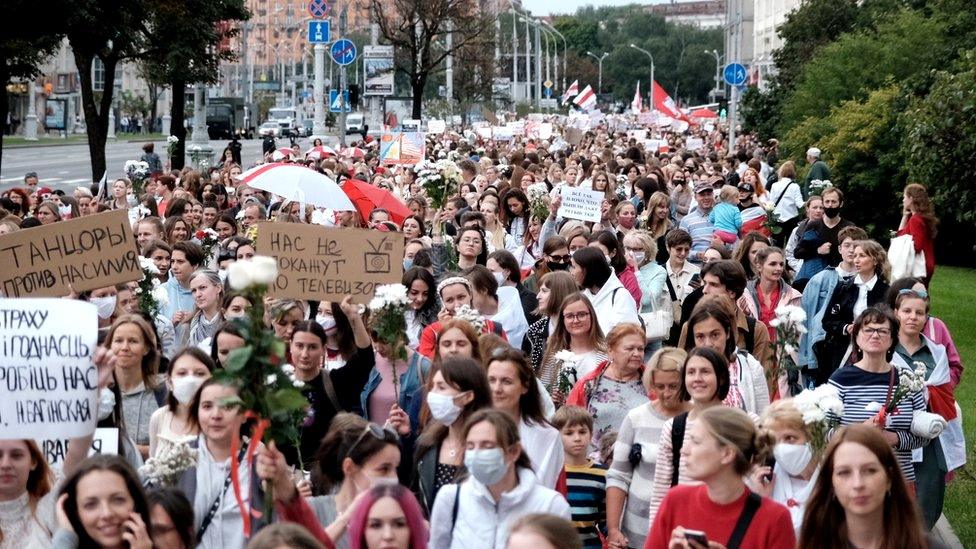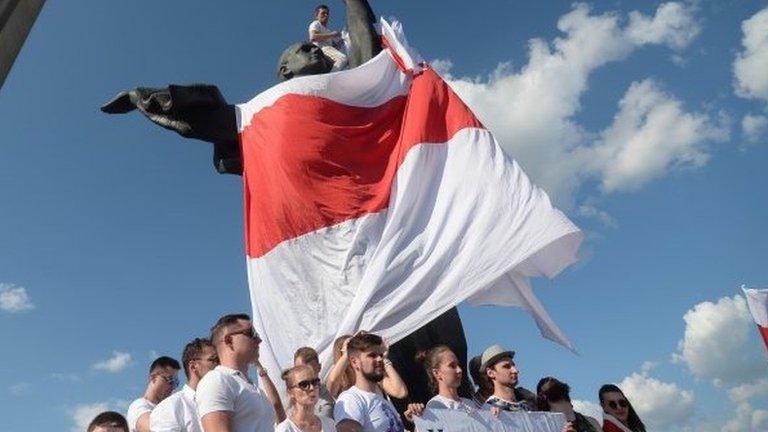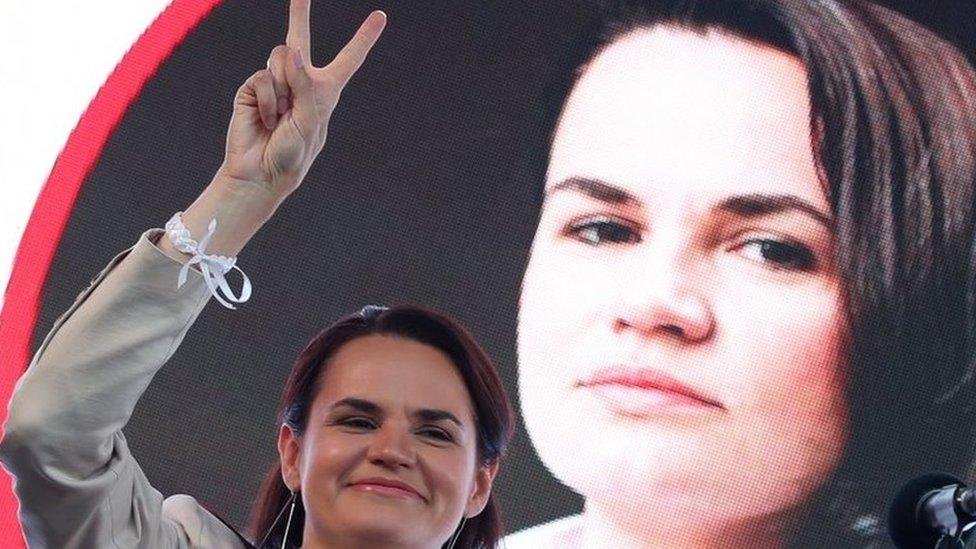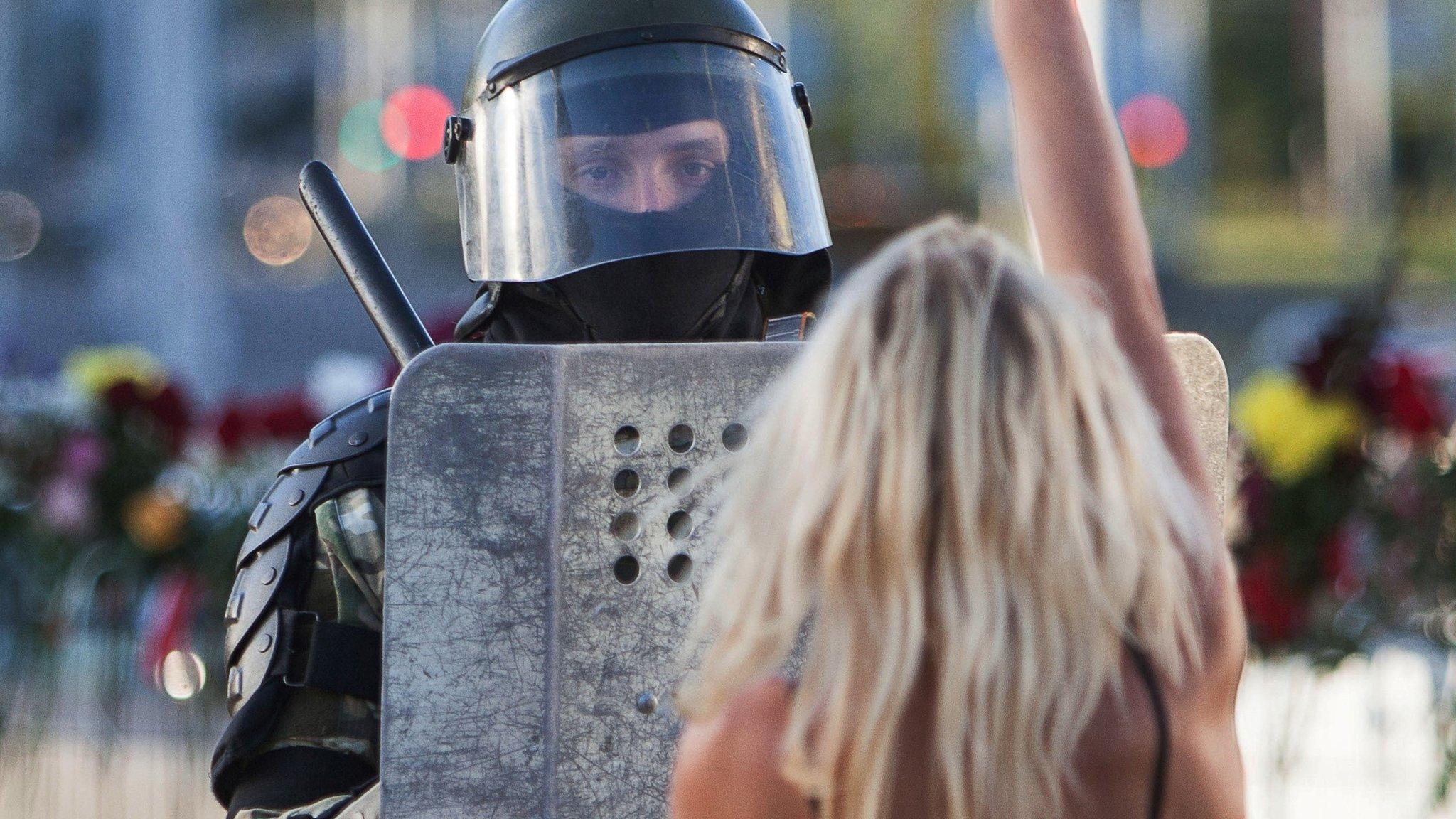Belarus: Journalists covering protests stripped of accreditation
- Published

Women demonstrate in Minsk against police brutality following recent anti-government protests
Authorities in Belarus have withdrawn the accreditation of a number of journalists who have been reporting on post-election protests there for foreign media outlets.
Two journalists with the BBC's Russian service are among those affected.
In a statement, the BBC said it condemned "in the strongest possible terms this stifling of independent journalism".
Fresh demonstrations against the government broke out on Saturday.
Belarus is gripped by mass protests, triggered by an election widely believed to have been rigged in favour of the long-time leader Alexander Lukashenko.
On Saturday, several thousand women - many in national dress - rallied in the capital, Minsk, waving flags and flowers in what they called a "march of Solidarity", urging Mr Lukashenko and the government to resign.
Riot police were out in force and made several arrests. Smaller rallies took place in other parts of Belarus, and come on the eve of what is expected to be another turbulent Sunday of post-election protests.
The BBC has urged the Belarusian authorities to allow access to its reporters.
"We believe it is vital for the people of Belarus to have access to impartial, independent information about events in their country. BBC Russian, which reaches more than five million people a week, has been a major source of news for people in Belarus and Russia during the post-election unrest," it said.
Government spokesman Anatoly Glaz told AFP news agency the action was taken following a recommendation from the country's counter-terrorism unit.
UK Foreign Secretary Dominic Raab said he condemned the move and had raised his concerns with Belarusian officials.
Allow X content?
This article contains content provided by X. We ask for your permission before anything is loaded, as they may be using cookies and other technologies. You may want to read X’s cookie policy, external and privacy policy, external before accepting. To view this content choose ‘accept and continue’.

Austria's foreign ministry described the action against journalists as a blatant attempt to suppress objective reporting.
At least 10 local and several Russian journalists lost their accreditation on Saturday, with Radio Liberty, AFP, and Deutsche Welle among the other outlets affected.
The announcement came days after multiple journalists - including a BBC team - were detained in Minsk ahead of a protest.
The interior ministry said they had been taken to a police station for identity checks. However, the BBC's Steve Rosenberg, who was among those detained, said it was a "clear attempt to interfere with coverage of events".
What's the background?
Unrest in Belarus was triggered earlier this month by an election widely believed to have been rigged in favour of President Alexander Lukashenko, who has been in power since 1994.
The leading opposition candidate, Svetlana Tikhanovskaya, fled to Lithuania following the vote and has since called for protests.
The country has seen unprecedented opposition demonstrations and workers have staged walkouts at major state enterprises. Thousands have been arrested and there have been numerous reports of police brutality.
What lies behind the Belarus protests?
At least four people have died and hundreds have been injured.
The European Union and the US are among those to reject the election as neither free nor fair. The EU is preparing sanctions against officials it accuses of rigging the result to deliver Mr Lukashenko's victory and of cracking down on the opposition movement.
- Published8 September 2020

- Published1 August 2020

- Published13 August 2020
